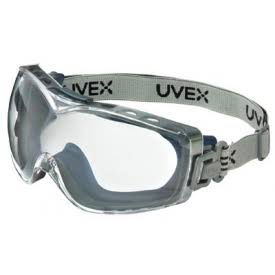Power Tool Safety: Use with Confidence, Not Carelessness
Operating any power tool, big or small, demands your full attention. Injuries can happen in a split second. That’s why following safety guidelines isn’t optional; it’s part of the job.
Here’s a list of must-follow safety tips to keep you protected while you work. And remember: read the manual for every tool you own and never substitute caution with confidence.
Before You Start: Read and Prepare
1
Read the Manual - Every tool is different. Know how yours operates before powering it on.2
Inspect the Tool - Check for frayed cords, loose parts, or damage before every use.3
Know the Job - Understand the material you’re cutting or fastening, and make sure you’re using the right tool and accessory for the task.
Basic Safety Gear
- Eye Protection – Always wear safety glasses or goggles. No exceptions.
- Ear Protection – Power tools can cause permanent hearing damage. Use earmuffs or plugs.
- Dust Protection – Wear a dust mask or respirator when working with wood, concrete, or anything that kicks up fine debris.
- Appropriate Clothing – Avoid loose sleeves, hoodies, or anything that can get caught in moving parts.
- No Jewelry – Especially when working near electricity or spinning parts.
Operation Do’s and Don’ts
- Always Use Guards – Blade guards and shields are there for a reason. Keep them in place.
- Use Push Sticks – Especially on table saws. Don’t risk your hands for one more inch of clearance.
- Let the Tool Do the Work – Don’t force cuts or press too hard. It’s not safer — it’s more dangerous.
- Keep Hands Clear – Maintain a safe distance from blades, bits, and belts at all times.
- Unplug or Remove Battery Before Adjusting – Never change a blade, bit, or sanding pad while the tool is plugged in.
- Use Sharp Blades and Bits – Dull tools cause more injuries than sharp ones because they slip or bind.
- Never Modify Tools – Removing guards or bypassing safety features makes accidents more likely, not less.
- Don’t Work Impaired – Never use power tools if you’re tired, drinking, or on medication that affects alertness.
Be Prepared for Emergencies
- Keep a First Aid Kit Nearby – Stock it with essentials and check it regularly.
- Have a Fire Extinguisher Ready – Choose an ABC-rated extinguisher and store it in your workspace.
- Know Where Your Power Shutoff Is – Whether it’s a breaker or power strip, know how to kill the juice fast if something goes wrong.
Final Thoughts
The best power tool users aren’t just skilled — they’re safe. Injuries happen fast, but they’re preventable with the right mindset and habits. Respect the tool. Respect the process. And always work smart.

